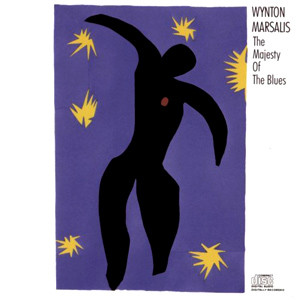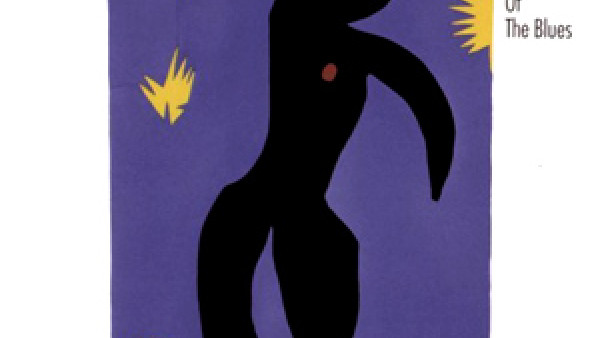Wynton looks at roots of Jazz
Growing up in New Orleans, jazz trumpet phenom Wynton Marsalis took the bubbling local music scene for granted.
Now, 10 years into Marsalis’s high-profile career, the music he is playing serves as a reminder of the importance – and continued vibrancy – of the Crescent City’s storied jazz and blues tradition.
Traditional blues has been an integral part of Marsalis’s live and recorded performances for several years now. But he has drawn more attention to it with his latest recording, “The Majesty of the Blues,” on Columbia Records (OC 45091).
It is a project that for several reasons stands as his most important to date.
“The New Orleans music, that groove, is the basic groove of all jazz music,” Marsalis said backstage at the recent Newport Jazz Festival at Saratoga, just before his acoustic sextet performed a stunning 65-minute blues-drenched set.
“I’ve been doing the blues all along. It takes time to develop what you’ve been working on. It’s just now that I’m using a plunger mute, so it sounds different. It is more developed. It has more range. You grow, you try to develop your concept, but it is the same concept.”
Joined by top musicians
On “Majesty,” Marsalis’s working band is joined by some of New Orleans’ top traditionalists – the venerable 80-year-old guitar and banjo player Danny Barker, trumpeter Teddy Riley (who played “Taps” at Louis Armstrong’s funeral, and trombonist Freddie Lonzo – on a three-part work called “The New Orleans Function.”
“I look up to Danny Barker. I played in his band, the Fairview Baptist Church Marching Band, when I was 8,” Marsalis says. And Marsalis, 27, is still learning from him. “Yes, Lord, I learned a lot. He didn’t use headphones in the studio, that was the first thing. Plus, he plays with a lot of intensity at a soft volume. It is real intense. He and Teddy Riley both.
“When I was playing with Teddy, I didn’t think he was playing that loud. Then when I checked out the tape, he was playing with so much intensity, personality and power, that was very interesting. Teddy Riley plays with a real personal sound.”
Pulling from the past is nothing new. In fact, it is the essence of jazz. In order to make a statement of musical worth and purpose, a musician has to absorb what came before. He or she must explore it all, sort through it, and forge his or her own identity from what is found to be most important.
Marsalis says Duke Ellington may be the best example of that musical osmosis.
“All of his music even his late music has that in it. It has the New Orleans music,” Marsalis says. “You can hear the clarinet call-and-response, polyphony, improvisational sections. Riffs, breaks, timbres, colors, rhythm changes, chord changes, tempo changes, different grooves.”
It comes down to a creative restlessness, to constantly strive, never stand still. Marsalis has rattled some chains during his youthful career, speaking with barbed opinions at times others in jazz wished he would let his music speak for itself.
He remains an eloquent speaker about a music he cares for passionately. But in 1989, Wynton Marsalis is maturing. Onstage and off, he sounds less brash, and far more at ease with himself. Most of all, it shows in his playing, where he speaks with his heart.
A hectic schedule
His performance and recording schedule sounds dizzying. In late June, he was in the studio with alto saxophonist Frank Morgan, recording three tunes (“Mood Indigo,” “Bessie’s Blues” and “Chasm the Bird”) for Morgan’s first project for Island Records.
He’s also writing music and planning more recording sessions of his own. And that brings up one unexpected sore spot. Marsalis says he has eight other albums, already recorded, still “in the can” unreleased by Columbia. Record companies frown on issuing more than one or two albums per year per major artist.
“I had to jump ‘The Majesty of the Blues’ two albums ahead to get it out now, when I thought it was important,” Marsalis said.
“It’s very aggravating, I’m going to be honest with you. I’d like to put out seven of them at one time. It would never sell, but I would really like to put them out, because I have plenty more to do.
By Ken Franckling (United Press International)
Source: The Dispatch


